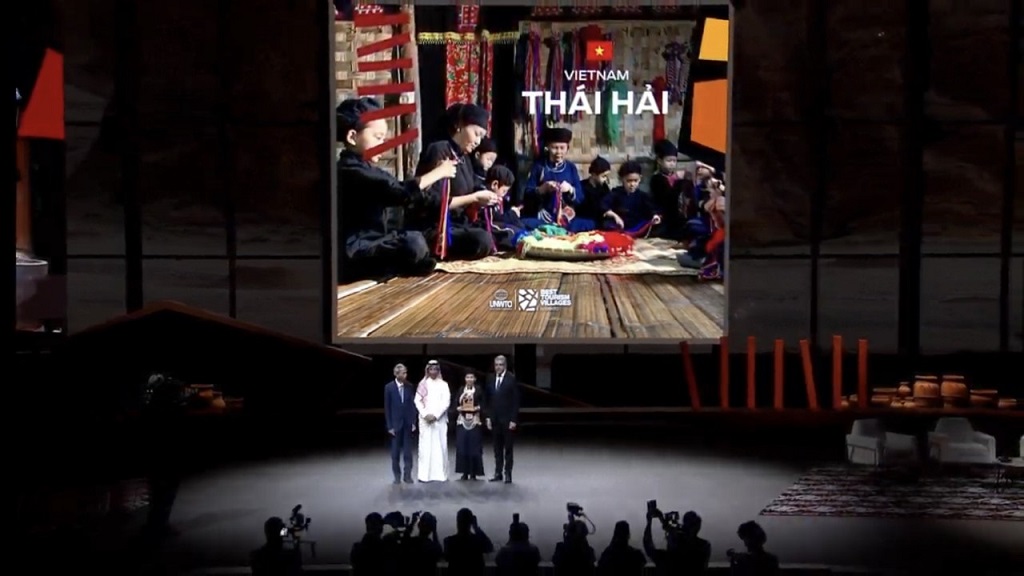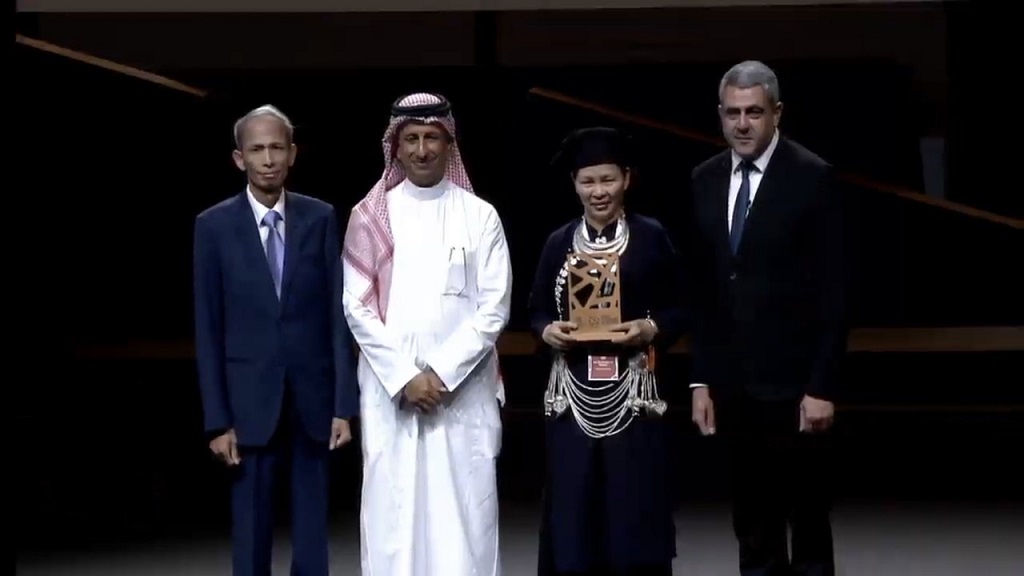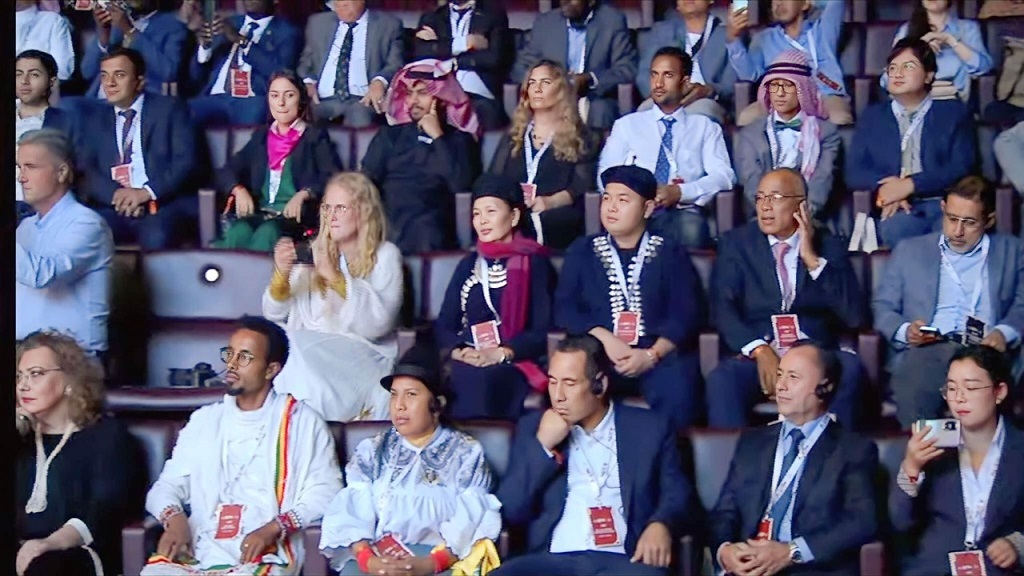(TITC) – On 12th March 2023, in Saudi Arabia, Thai Hai Village (Vietnam) was honored at UNWTO’s Best Tourism Villages Award Ceremony.

The ceremony brought together Ministers of Tourism alongside representatives of the most recent villages recognized by UNWTO. In 2022, a total of 32 villages from 22 countries across the five world regions were awarded the recognition.
Thai Hai Reserve Area of Ecological Houses-on-stilts Village (Thinh Duc Commune, Thai Nguyen City, Thai Nguyen Province) has become the only representative of Southeast Asia to participate in this prestigious award.

The village covers 20 hectares of green forest area, with more than 30 traditional houses-on stilts. The Tay community of 4 generations is preserving the traditional culture, including its language, customs, rituals, ceremonies, and costume as tourism attractions.
The village promotes local culture potential to form unique and authentic tourism products. It hosts traditional spiritual festivals, utilizing the village’s ethnic people who have specific cultural knowledge and language skills to act as tour guides. Moreover, the locals actively preserve and maintain the traditional stilts houses which are shared with visitors. The homes of the villagers offer homestays for tourists to showcase Tay cuisines, breeding, agriculture activities, and crafts.
This village has developed the traditional “Tay” culture as the soul and root of tourism development. Tourists can enjoy traditional costumes, language, and gastronomy; participate in spiritual and cultural festivals; enjoy traditional music and make traditional handicrafts. This encourages local people to further appreciate their traditional culture, whereby they have formed a tourism-developing community which simultaneously promotes economic, social, and environmental sustainability in the village.

To promote local production and sustainable economic development, each household in the village develops unique specialized products to create expertise and diversity. This helps to improve the quality and variety of tourism products on offer which include traditional cakes, organic vegetables, and handicrafts.
The foundation of the village management here is based on a family model. It ensures that sustainable economic development and business administration principles are shared with workers who are of ethnic minorities in order to retain the discipline, lifestyle, and the community culture of the village.
Tourism Information Technology Center